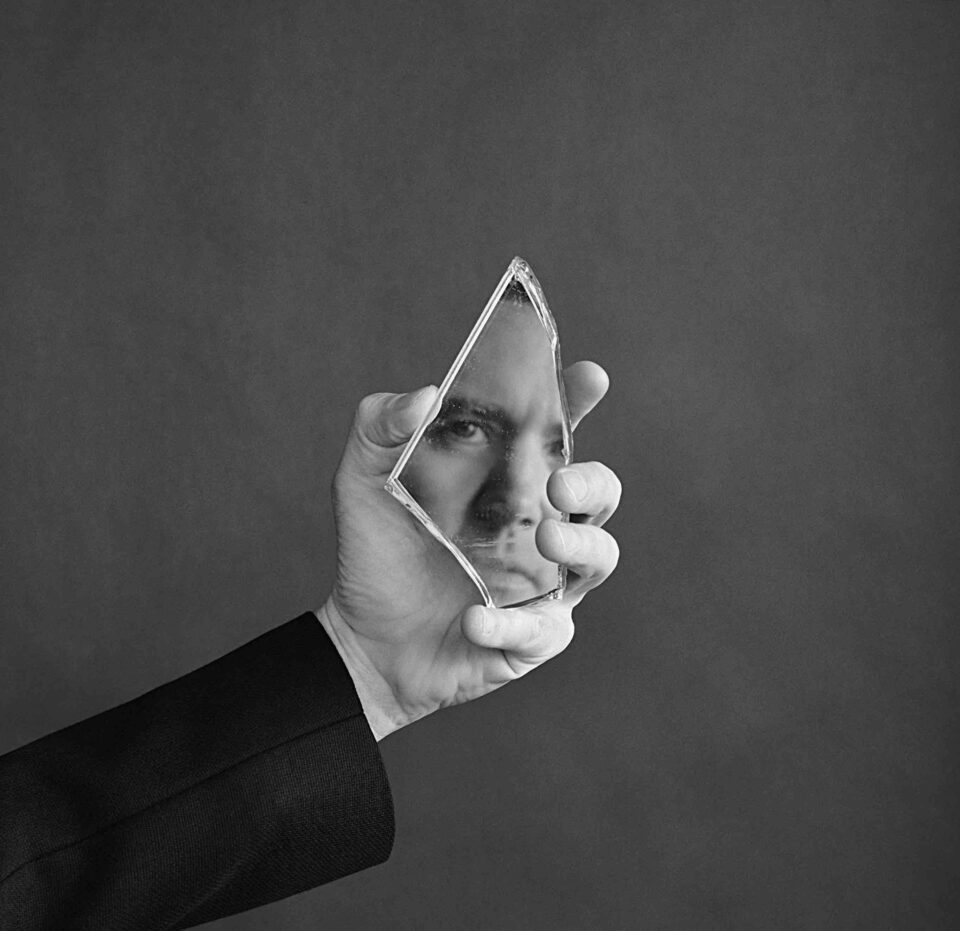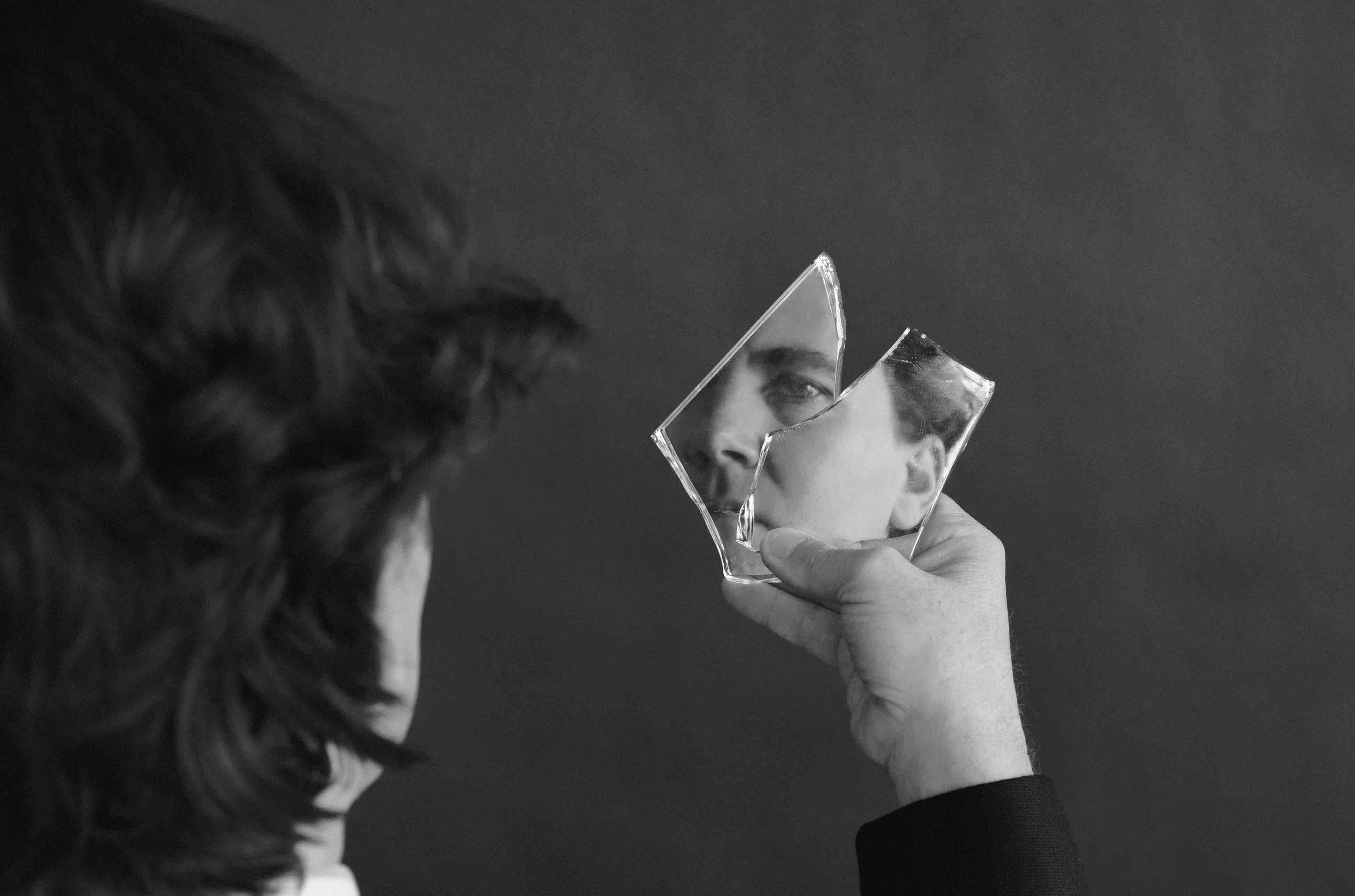Cass McCombs is always writing. He’ll be the first to tell you that he’s a songwriter first, while the recording and production of his songs are a separate adventure entirely. He writes way more music than he can record, and what is recorded is done so with an “open door” policy—as in anyone could show up and join him at any moment. Perhaps for this reason, his 11 albums dance through any genre they desire, loosely bending into folk, jazz, conventional rock, or even 808-infused post-punk. But what remains consistent is that heart of a songwriter, as true as any. His lyrics are often so tender and direct, you wonder if he’s quoting a classic song. In fact on “Karaoke,” a single from his upcoming album Heartmind, he does just that. The narrator wonders if their lover really means the lyrics of “Stand By Your Man” or “Vision of Love” when they sing them. Or is it just karaoke?
The characters and narratives on Heartmind reflect some of the most mature writing of McCombs’ career. Through his thoughtful observations on the conviction of youth in “Unproud Warrior” and the stubborn honesty of our hearts on the closing title track, he weaves a surprising mix of tales loosely tied together to form his relaxed concept of an album. For this LP, he recorded mostly at Shahzad Ismaily’s Figure 8 studio in Brooklyn, and boasts a wealth of collaborators including Ariel Rechtshaid, Buddy Ross, Wynonna Judd, the Chapin Sisters, and Danielle Haim, as well as the prominently featured avant-garde artist Ismaily.
Leading up to the record’s release, we talked with McCombs about the joy of this album’s collaborations, the legacy of humor in American music, and the process of approaching an album recklessly.
This is your first album since you and Wynonna Judd formed Frothy Pit. How was it having her on one of your solo albums?
She did it remotely from her home in Nashville. It was great, I love her and Cactus [Moser], her husband. They’re really lovely people.
How about Shahzad Ismaily? How did that come together?
We met during the last record, Tip of the Sphere. This one he played a lot more on it and co-produced it. He was really important to making the record and is a really fun guy to be around. It’s cool working with these jazz musicians or avant-garde musicians. The whole time we’re trying to make music that hasn’t been made before. It’s in the world of rock or the world of folk—there are these touchstones. But we don’t want it to be derivative or genre-fied. We talked a lot about that, pushing into new directions. You know, it’s a really fun thing to explore, because there’s no rules. Once you go into new directions, there’s no bad decisions. It’s all new territory.
“There’s kind of an ethos to keep things loose, where it’s reckless and you’re stepping into the unknown. It’s not for the purpose of commerce, but to keep it powerful and relevant, and beneficial to other artists.”
It must be special to have a collaborator who also wants to go in new directions.
Yeah, there’s kind of an ethos to keep things loose, where it’s reckless and you’re stepping into the unknown. It’s not for the purpose of commerce, but to keep it powerful and relevant, and beneficial to other artists. That’s another thing, what is beneficial to artists? Do people ask that question? What can one musician offer the next musician? Why do we live in different departments? You ask musicians what music they’re influenced by and generally they’re influenced by music from, like, 50 years ago. Very few musicians say they’re influenced by current work. They should be creating for each other. I’ve witnessed that with people I work with, and it’s an inspiring thing.
I’ve been so bored with when people try to make music sound like the ’60s. Each song is just like a skeleton. There’s no flesh on it, no organs, no eyes, no senses. It’s like an open book. It can go any way. Recording is kind of like putting the flesh on top of the bones. You can give the creature big ears—huge ears that drag on the ground. They’re tripping over their ears, they’re so long [laughs].

“None of our problems are anything a good dance can’t eliminate.”
“Krakatau” is one of those unique songs. It’s very kinetic and energized, but there’s also this lyrical theme of finding enlightenment. Where did that song come from?
Well, it’s a dance song, and lyrically I’m trying to write dance lyrics. Songs that are dance-oriented are very direct, lyrically. It’s a simple structure, and it’s a lyrical motif that’s transferable in an infinite amount of ways. I also feel like when you dance, we’re shedding things. We’re getting rid of our worries. We dance to let go. All the stuff that’s heavy in our lives, stressful, or whatever. When we dance, we dance to lose things.
When we’re done dancing, do those problems come back?
No, they leave for good! None of our problems are that great in life. I know I’m different, I know everyone thinks it’s the end of the world. But none of our problems are anything a good dance can’t eliminate.
A lot of your music is joyful and funny, but this album in particular had me smiling. Do you intend to make songs funny, or is it just something that happens?
It’s completely intentional. I want it to be comedic. There’s a clown-like element to my narrators, often. I think people miss that sometimes. There’s something about lyricism that people think it needs to be serious or confessional or something. So many great folk and country songs are hilarious. It’s a great tradition in American songwriting, a sense of humor. A lot of hip-hop is funny, too.
There’s a lot of music these days that’s marketed and is about the identity and the celebrity of a person, and I think there’s a seriousness around a lot of [this] work. I find it personally pretty inaccessible. Then there are some other artists who are silly, but their lyrics aren’t cutting. They’re not comedic, they’re just silly. There’s a difference. There’s no wit to that. So there’s an open field for people to explore wit and lyricism. It delights me, I don’t know.
“Recording itself is kind of a death. As a songwriter, I would almost like to never record—you’d never have to decide the direction [a song] could go. It could live in infinite possibilities in your imagination or on the page or whatever.”
What are you most proud of at this point in your career?
I think just to allow myself to keep writing, keep coming up with original scenarios and approaches that are different. That’s it for me. Recording itself is kind of a death. As a songwriter, I would almost like to never record—you’d never have to decide the direction [a song] could go. It could live in infinite possibilities in your imagination or on the page or whatever. Each decision is a kind of compromise. And sometimes those decisions are better than others, but there’s some melancholy that comes with it. There’s always a sense that later when you have the object, you think about what could’ve been, the billion other decisions that could’ve been made.
It’s a feeling that leads you to create the next song, the next skeleton or structure. It’s not necessarily a healthy process [laughs]. You go around and around, and there’s really no end to it. It’s kind of a casino in a way—you lose every time because you have to make decisions. Why these decisions and not those decisions? Well, there’s no “why,” it’s just the thing you did. That’s how I always approach records, and especially this record, just kinda recklessly. Because if you can minimize decisions, you can minimize a feeling of wondering about the possibilities of what could’ve been. Make something that’s kinda ugly-sounding and kinda crazy and not in line with industry standards, and it can give you a joyful feeling. FL







